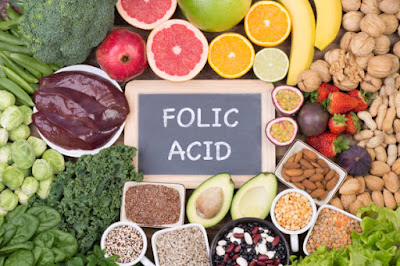Folic Acid:
Introduction to Folic Acid
Folic acid, also known as folate or vitamin B9, is a crucial nutrient that plays a vital role in various bodily functions. It is essential for cell division, DNA synthesis, and the formation of red blood cells. While naturally present in many foods, folic acid is also available as a dietary supplement.
What is Folic Acid?
Folic acid is a synthetic form of folate, a water-soluble B vitamin. It is the fully oxidized monoglutamate form of folate, commonly found in fortified foods and supplements. Folate, on the other hand, refers to the various forms of vitamin B9 naturally found in foods.
Importance of Folic Acid
Benefits for Overall Health
Folic acid is essential for maintaining overall health. It supports the proper functioning of the nervous system, aids in the production of DNA and RNA, and helps in the formation of new cells. Adequate intake of folic acid is crucial for energy metabolism and the synthesis of amino acids.
Role in Pregnancy
One of the most critical roles of folic acid is its importance during pregnancy. It is necessary for proper fetal development, especially during the early stages of pregnancy. Adequate folic acid intake before conception and during the first trimester helps prevent neural tube defects, such as spina bifida, in newborns.
Food Sources of Folic Acid
Natural Sources
Folic acid is naturally found in various foods, including leafy green vegetables (such as spinach and broccoli), legumes (such as beans and lentils), fruits (such as oranges and avocados), and fortified grains (such as bread and cereal).
Fortified Foods
Many food products, such as breakfast cereals, flour, and rice, are fortified with folic acid to help increase intake, especially among populations at risk of deficiency.
Folic Acid Deficiency
Causes
Folic acid deficiency can occur due to inadequate dietary intake, poor absorption, or increased requirements (such as during pregnancy). Certain factors, such as alcoholism, malabsorption disorders, and certain medications, can also contribute to deficiency.
Symptoms
Symptoms of folic acid deficiency may include fatigue, weakness, shortness of breath, pale skin, irritability, and forgetfulness. In pregnant women, deficiency can lead to an increased risk of neural tube defects in the developing fetus.
Health Conditions Linked to Folic Acid Deficiency
Anemia
Folic acid deficiency can lead to megaloblastic anemia, characterized by abnormally large red blood cells. This condition can cause symptoms such as fatigue, weakness, and difficulty concentrating.
Birth Defects
Insufficient folic acid intake during pregnancy increases the risk of neural tube defects, such as spina bifida and anencephaly, in newborns.
Cardiovascular Diseases
Folic acid deficiency has been associated with an increased risk of cardiovascular diseases, including heart disease and stroke.
Recommended Daily Intake
The recommended daily intake of folic acid varies depending on age, sex, and life stage. For most adults, including pregnant women, the recommended daily allowance (RDA) is 400 micrograms per day.
Supplementation of Folic Acid
Who Should Supplement
Certain individuals may require supplementation with folic acid, including pregnant women, women planning to conceive, individuals with malabsorption disorders, and those with a history of folic acid deficiency.
Dosage and Safety
Supplementation with folic acid should be done under medical supervision to avoid excessive intake, which can mask symptoms of vitamin B12 deficiency. High doses of folic acid can also interfere with certain medications and may not be suitable for everyone.
Impact of Cooking and Storage on Folic Acid Content
Cooking and storage methods can affect the folic acid content of foods. Boiling, steaming, and microwaving foods can cause some loss of folic acid, while freezing and refrigeration generally have minimal effects.
Folic Acid and Mental Health
Emerging research suggests that adequate intake of folic acid may play a role in mental health and cognitive function. Low levels of folate have been associated with an increased risk of depression and cognitive decline.
Folic Acid and Cancer Prevention
Some studies suggest that folic acid may have a protective effect against certain types of cancer, including colorectal cancer. However, more research is needed to fully understand the relationship between folic acid and cancer prevention.
Folic Acid and Heart Health
Folic acid may help lower levels of homocysteine, an amino acid associated with an increased risk of heart disease and stroke. By reducing homocysteine levels, folic acid may help promote heart health and reduce the risk of cardiovascular events.
Tips for Increasing Folic Acid Intake
Consuming a balanced diet rich in folate-containing foods is the best way to ensure an adequate intake of folic acid. Include plenty of fruits, vegetables, whole grains, and fortified foods in your diet to meet your daily requirements.
The Role of Folic Acid in DNA Synthesis
Folic acid plays a crucial role in DNA synthesis, the process by which cells replicate and repair their genetic material. It is necessary for the production of nucleotides, the building blocks of DNA, and helps ensure the accurate transmission of genetic information during cell division. Without an adequate supply of folic acid, cells may be unable to replicate properly, leading to disruptions in growth and development.
Folic Acid and Age-Related Cognitive Decline
In addition to its role in fetal development and mental health, folic acid has also been studied for its potential benefits in age-related cognitive decline. Some research suggests that adequate intake of folic acid may help preserve cognitive function and reduce the risk of conditions such as Alzheimer's disease. However, more studies are needed to fully understand the impact of folic acid on cognitive health in older adults.
Folic Acid and Stroke Risk
High levels of homocysteine, an amino acid found in the blood, have been linked to an increased risk of stroke and other cardiovascular events. Folic acid helps lower homocysteine levels by facilitating its conversion to other substances, thus potentially reducing the risk of stroke. Including folic acid-rich foods in the diet or taking supplements may help support cardiovascular health and lower the risk of stroke, especially in individuals with elevated homocysteine levels.
The Importance of Folic Acid in Red Blood Cell Formation
Another critical role of folic acid is its involvement in red blood cell formation. Folic acid is necessary for the production of hemoglobin, the protein that carries oxygen in the blood. Without enough folic acid, the body may produce abnormally large red blood cells, leading to a type of anemia known as megaloblastic anemia. Symptoms of this condition may include fatigue, weakness, and shortness of breath.
Folic Acid and Eye Health
Emerging research suggests that folic acid may also play a role in maintaining eye health and preventing age-related vision problems. Some studies have found a link between folic acid intake and a reduced risk of conditions such as age-related macular degeneration (AMD), a leading cause of vision loss in older adults. Including folic acid-rich foods in the diet, along with other nutrients like vitamins C and E, may help support eye health and preserve vision as we age.
Conclusion
Folic acid is a vital nutrient that plays numerous roles in the body, from supporting cell division to promoting proper fetal development during pregnancy. Ensuring an adequate intake of folic acid through diet and supplementation can help maintain overall health and reduce the risk of certain health conditions.
FAQs About Folic Acid
1. Is it safe to take folic acid supplements during pregnancy?
Yes, it is generally safe to take folic acid supplements during pregnancy, as they help prevent neural tube defects in the developing fetus.
2. Can folic acid deficiency be reversed with dietary changes alone?
In some cases, increasing intake of folate-rich foods can help reverse mild folic acid deficiency. However, supplementation may be necessary in severe cases.
3. Are there any side effects of taking folic acid supplements?
Folic acid supplements are generally well-tolerated, but high doses may cause side effects such as nausea, bloating, and insomnia.
4. Can folic acid help improve mental health?
Some studies suggest that adequate intake of folic acid may have a positive impact on mental health, particularly in reducing the risk of depression.
5. How can I tell if I'm getting enough folic acid in my diet?
Monitoring your dietary intake of folate-rich foods and considering supplementation if needed can help ensure you're getting enough folic acid for optimal health.


